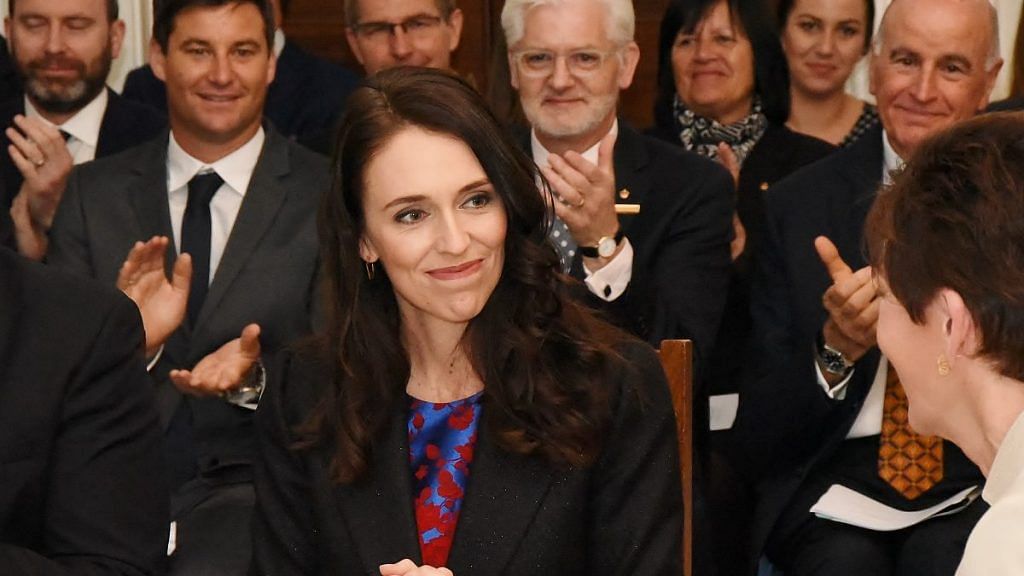Jacinda Ardern did not keep her pregnancy a secret. She is now the second PM after Benazir Bhutto to give birth while in office.
In a world where ‘motherhood penalty’ still takes its toll, Jacinda Ardern, the Prime Minister of New Zealand, has given birth to a baby girl while in office.
Entitled to six weeks’ leave under New Zealand’s maternity policy, she will spend the time with her newborn after which her partner, Clarke Gayford, will take over.
Ardern made no secret of the fact that she and her partner were expecting a child and is now the second world leader to give birth while in office (Benazir Bhutto was the first).
For most working women, the career versus family dilemma is difficult to handle.
And in case you’ve been tricked into believing that this is a Third World phenomenon, sample this: When Ardern took over as the Labour Party leader last year, she was asked by two talk show hosts about whether she desired to start a family. The ‘AM Show’ co-host Mark Richardson went as far as to suggest, “If you are the employer of a company you need to know that type of thing from the woman you are employing … the question is, is it OK for a PM to take maternity leave while in office?”
A miffed Ardern had cited the Human Rights Act of 1993 that entitled women to keep their future family plans private. “Would you ask a man the same question if he were in my place,” asked Ardern. In October 2017, she took over as Prime Minister. In January 2018, she declared that she was pregnant.
Despite it being illegal across many developed nations to ask a woman about her future family plans, the trend still continues in the UK. According to the Equality and Human Rights Commission, nearly a third of the private employers believe that it is acceptable to ask a woman whether she is pregnant or thinking about starting a family or has young children.
The US passed the Pregnancy Discrimination Act in 1978. Yet in 2017, US paid $15 million in settlements for pregnancy discrimination charges under the Equal Employment Opportunity Commission.
According to a government-sanctioned study, nearly 75 per cent pregnant working women in the UK said they had been discriminated against at work in 2016.
This inherent bias becomes evident when women in positions of power, like Madhya Pradesh Governor Anandiben Patel, make sexist remarks.
Speaking at an Anganwadi centre in Indore, Patel said: “Even today, women in cities believe that it (breastfeeding) will spoil their figure, which is why they do not breastfeed their children. They start bottle feeding their children”.
Bottle-fed children’s fate is as fragile as a glass bottle, according to Anandiben. Considering the miniscule number of employers providing crèche facilities or flexible working hours to new mothers, one wonders how Anandiben proposes they breastfeed their kids. Perhaps, women must only take care of the family as has traditionally been established. The guilt culture in India often pushes women to quit their jobs after becoming mothers.
Nearly 92 countries still do not have a paternity leave policy. The bulk of the burden – both traditionally and in today’s modern capitalist society – then falls on the new mother. She is ‘expected’ to prioritise her family over her career.
As Ardern welcomes her newborn daughter, let’s hope the world learns that this expectation needs to change. Motherhood/parenting and career need not be exclusive of each other. Women can do both, all they need is a little bit of understanding, and a lot of sharing the responsibility, especially from their partners.
